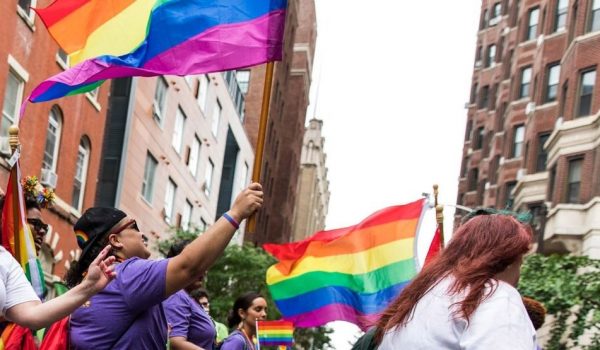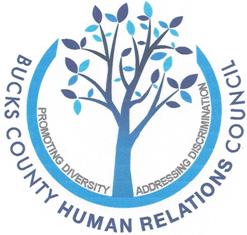Pennsylvanians can finally file LGBTQ discrimination complaints
The Pa. Human Relations Commission has expanded the definition of “sex” as it applies to the state’s anti-discrimination laws.
Aug 15 2018 · 11:00 a.m.

A scene from the 2018 Philly Pride Parade
Sydney Schaefer / Billy Penn
HARRISBURG — For the first time ever, LGBTQ Pennsylvanians have a way to seek recourse from the state if they’re the subject of discrimination based on their gender identity or sexual orientation.
The Pa. Human Relations Commission last week released new guidance with an expanded definition of “sex” as it applies to the state’s discrimination laws. The word now encompasses not just sex assigned at birth, but also sexual orientation, gender identity, gender expression, gender transition, and transgender identity.
That change allows Pennsylvanians to file a complaint with the commission if they believe they have experienced education, employment, housing or public accommodation discrimination because they’re LGBTQ.
Executive Director Chad Dion Lassiter said the move was a “long time coming.” He emphasized that while he respects opposing viewpoints and knows there’s been pushback, “it was the right thing for us to do as a commission.”
In addition to providing recourse, the new guidance is “also about seeing the humanity in all people,” Lassiter said.
‘People assume we already have these protections’
The commission investigates complaints from Pennsylvanians who believe they’ve experienced illegal discrimination in five areas: employment, education, housing, public accommodations, and commercial property. If the commission substantiates the claim, victims may be awarded financial restitution for lost wages or damages.
The Pennsylvania Human Relations Act (which covers employment, public accommodations and housing discrimination) and the Pennsylvania Fair Educational Opportunities Act provide protections based on race, color, religion, ancestry, age, sex, national origin, and disability.
The Republican-controlled General Assembly has declined several times to amend these laws — which were most recently updated in the 1990s — to add gender identity and sexual orientation as protected classes. More than 50 Pennsylvania municipalities, including Philadelphia and Pittsburgh, have passed local protection ordinances, although legal experts and advocates say those laws are at risk because of a proposal in Harrisburg.
“The new guidance will help fill those gaps and ensure that people in Pa. do not face discrimination,” said Sara Rose, a staff attorney with ACLU of Pa. (Rose’s employer submitted comments in favor of the change.)
However, it does “not take the place of comprehensive legislation in the state,” wrote advocacy group Equality PA last year.
Still, the commission received dozens of comments from people who see the new guidance as overreach, including from three elected Republicans: Rep. Cris Dush of Brookville, Rep. Rob Kauffman of Chambersburg, and Sen. Mike Folmer of Lebanon.
In a July comment and response document, the commission said the “legislature declined to provide a definition for ‘sex’ when they added it as a protected class,” so it’s left to interpret the laws by looking at court precedent. Federal courts have several times ruled that sex discrimination under the workplace-focused Title VII of the Civil Rights Act includes bias against LGBTQ people.
In the past, Pennsylvanians could have brought a Title VII lawsuit against their employer to allege discrimination based on gender identity or sexual orientation. But as Rose pointed out, Title VII does not include public accommodations (like retail stores and restaurants) while the state’s Human Relations Act does.
“This guidance merely clarifies that the commission is open to all arguments on both sides of the issue being utilized in the courts today,” the comment document stated. “Any complaints filed as a result of this guidance being issued will be handled on a case-by-case basis, the same as any other complaint filed with the commission.”
“I think a lot of people assume we already have these protections,” Rose said. The new guidance brings “the law in line with what expectations are.”
Religious liberty vs. personal agency
After the commission released the proposal last year, it received and responded to more than 8,000 comments.
Sixty-three comments said the change was “unnecessary because they have not seen any proof that LGBTQ individuals are being discriminated against.” More than 90 comments simply stated anti-LGBTQ beliefs. Nearly 1,000 claimed the proposal would “pose a threat to women and children in the restrooms, such as sexual assaults.”
And more than 2,000 comments expressed varying concerns about religious liberty, including those who fear “houses of worship and religious schools [will be] forced to hire employees who do not comply with the anti-LGBT tenets of faith.”
The commission addressed these concerns by pointing to the state’s Religious Freedom Protection Act, which prohibits government from placing a significant burden on the “free exercise of religion” by individuals, churches, and tax-exempt organizations. The law does not extend to private businesses.
Burden is defined as something that:
- Significantly constrains or inhibits conduct or expression mandated by a person’s sincerely held religious beliefs.
- Significantly curtails a person’s ability to express adherence to the person’s religious faith.
- Denies a person a reasonable opportunity to engage in activities which are fundamental to the person’s religion.
- Compels conduct or expression which violates a specific tenet of a person’s religious faith.
If a complaint is brought against a person or religious organization for LGBTQ discrimination, they can use Pennsylvania’s religious freedom law as a defense, the commission wrote.
Lassiter said it’s the job of the commission to see how Pennsylvanians are adversely affected, look at all sides of an issue, and “come to consensus as best we can.” The commission has suffered in recent years from staffing shortages and allegations of discrimination, something Lassiter has vowed to address.
“I understand there are dissenting opinions,” he said, including among commission members. “I embrace those as well.”
He wants the guidance to serve as a catalyst to have bigger conversations about prejudices like transphobia, even though they may be uncomfortable.
“Policy has to be able to meet those forms of phobias,” he said. “That’s important as well.”
